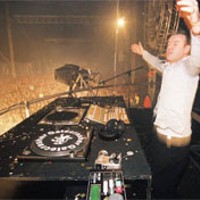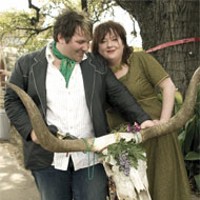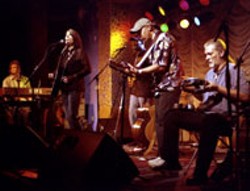Page 2 of 3
"When I was growing up, I had a band with my friends that included keyboards, bass and trumpet," says Cashion, laughing. "But it was great. I used to say to my friends, wouldn't it be great to be able to play all sorts of different styles of music for a living? But in a way, that's exactly what I get to do. It's sometimes hard for me to understand people who don't want to do that."
By unanimous decree, our men say that the single most important thing to remember when moving up the rank and file is that this is not your gig. It's someone else's, and you've been fortunate enough to get asked to play on it (or, at the very least, get paid for it).
"There's a lot of times when the artist wants to hear a particular thing and you might not agree with it," says Brock. "And you try to steer them in your direction if you really think you're right. But at the same time, they've got the last call, and you've gotta give "em what they want. "Cause it's their vision...Usually the larger, well-established artists do that. They won't hire you and tell you what to play; they hire you for what you do. They trust you, or they wouldn't have hired you in the first place. But some of the more inexperienced people that you might get called for, they think they need more power or something, so they try to dominate a situation. That gets kind of hard some time. But really, the first thing you gotta have is a good attitude when you go in. I like to use Nashville as an example, just because I work there so much. The entry level in Nashville as far as studio goes is really high. They know they can call anybody and they'll be great. So they tend to hire people they just personally kind of like, and like being around, and have a good working environment with. That's your number one thing, if you can play. And keep your chops in your back pocket. If you're making a record, you've got 50-70 minutes to do it if you have something you really want to say. Just kind of relax and let the music govern what you play, and don't force anything."
"Since starting out, most anytime I've had a chance to play on someone's recorded project, I've done it," says Garges. "Starting out, it was mostly for free. It would inevitably all lead to good stuff. There are plenty of people who are good, but just being good doesn't cut it if you're sitting at home being good. If no one ever hears you, then it does you no good, if this if the life you want. You just keep your ears and options open. Anything you can do to increase your chances to show people you can play helps. And that's why I'm happy I went to college. Not that I've had to read music at a session in years, but doing that gave me an opportunity to play with a lot of people who were doing the same thing. If I ever wanted to move to New York or LA or Nashville, I know people there now."
"It's all part of getting interconnected," Cashion says. "A guitar player I was working with down in Miami was from Michigan, and got me the Bob Seger gig. He also got me the Shakira gig two summers ago on MTV, where she was doing the MTV Icons thing for Aerosmith. I got to sing "Dude Looks Like a Lady" with her. (laughs.) It's all part of being in an environment with people who are looking to do the same thing you're doing, I think. It's a matter of determination, really. If you're an athlete, and if you play good in school, you go pro. There's an accepted path to follow, for the most part. With music, it's just making your own way, surrounding yourself with people you like, and doing what feels right.
Speaking of Vibes_feature.html
-

The New Mythology of AFRO-FUTURISM
Jul 20, 2005 -

Nothing Fails Like Success
Jul 13, 2005 -

Scarlet Begonias
Jul 6, 2005 - More »
Latest in Music Features
More by Timothy C. Davis
-

Smoke This Issue: Eats
Apr 18, 2012 -
Joe Firstman tonight (Nov. 10) at The Evening Muse
Nov 10, 2010 -
Hot Rize tonight (Nov. 5) at McGlohon Theatre
Nov 5, 2010 - More »
Calendar
-
Hozier - Unreal Unearth Tour 2024 @ PNC Music Pavilion
-
Beach Fossils with friends Nation of Language @ The Underground
-
The Rock Orchestra By Candlelight @ N.C. Music Factory
-

Haw River Wine Tasting @ Carolina Beer Temple.
-
ATTILA, BORN OF OSIRIS w/ TRAITORS, EXTORTIONIST, NOT ENOUGH SPACE @ The Underground
-
Justin Fedor's tribute shows benefit Levine Children's Hospital
Charlotte musician's concert series takes place at the Neighborhood Theatre
-
Hayley Williams topless photo circulates
Topless photo of Paramore's Hayley Williams hits the Internet.
-
Christian punks MxPx wrestle with doubt — and greatness 30
Mike Herrera lets his band grow beyond its beginnings














